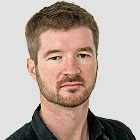Baitullah Mehsud, the self-appointed emir of the Pakistani Taliban and the country's most wanted man, did as much as any single person to destabilise the nuclear-armed nation of 170 million people in recent years.
The 39-year-old, who declared that he was "at war" with the Pakistani government, deployed a wave of suicide bombers across the country, employing tactics rarely used before. Last year, they killed an estimated 2,000 people.
This year, CIA-operated drone planes equipped with laser-guided missiles have concentrated their efforts on Mehsud's mountainous hideout in the tribal belt along the Pakistan-Afghanistan border. In March, the US placed a $5m bounty on his head; Pakistan later added another $600,000. Now, it appears he has been killed by two missiles fired from a drone.
The significance of his death is comparable to that of the Iraqi al-Qaida leader Abu Musab al-Zarqawi in June 2006. As leader of Tehrik-I-Taliban Pakistan (TTP), he controlled the largest Taliban group, with influence extending beyond the tribal areas into Swat, the tranquil tourist destination that fell into militant control this year. The Pakistani Taliban are distinct from, but related to, the Taliban that ruled Afghanistan from 1996 until 2001.
In March, a gang of tribal gunmen stormed a poorly defended police training centre in Lahore, killing eight cadets. Claiming responsibility, Mehsud said the assault was in retaliation for drone missions. The next attack, he threatened, would be in the heart of American power. "Not in Afghanistan, but in Washington, which will amaze the entire world," he said.
Although the US general David Petraeus said he was "galvanised" by the claim, few analysts took it seriously. Similarly, when Mehsud took responsibility for a shooting at a US immigration centre in New York in which a gunman killed 13 people, saying it was revenge for drone attacks in Pakistan, analysts wrote it off as a publicity stunt.
He was certainly behind a great numbers of deaths in his own country, among them soldiers, police officers, suspected spies and innocent bystanders. Some were beheaded; most died in suicide blasts set off mainly by young, impressionable boys and men from poor families.
Mehsud's greatest achievement was to revitalise Pakistan's jihadist network, bringing together disparate groups of Pashtun warlords, jihadi fighters from Punjab and al-Qaida fugitives from across the Muslim world. Although uneducated and ordinary looking, Mehsud was said to be focused, intelligent and quietly charismatic. "There's a sense of strength and energy about him," said Shoaib Hasan, a BBC reporter who met Mehsud in Waziristan in 2008. "And he has a charisma. When he talks, his people listen."
According to a senior Pakistani intelligence official, Mehsud was born in 1970 and spent the latter part of the 1980s fighting the Russians in Afghanistan. In the 1990s he battled alongside the Taliban militias as they swept into Kabul.
He shot to prominence in 2004, filling the vacuum left by the death of Nek Muhammad, a Wazir commander killed by the first US Predator drone strike inside Pakistan. He exploited the Pakistan army's weakness for peace deals. A February 2005 agreement brought a halt to fighting and a donation of more than $500,000 in taxpayer money. By the time it collapsed, Mehsud had reorganised his militia, now thought to number more than 2,000 in South Waziristan alone.
In 2007 he humiliated the army by kidnapping more than 200 soldiers, who were later released – except for three Shia soldiers beheaded on video – in exchange for 25 Taliban prisoners. He strengthened ties with al-Qaida fighters. Pakistani officials said between 1,000 and 1,200 Uzbek fighters lived in Waziristan, most on Mehsud turf.
One recurring question was Mehsud's links with Pakistani intelligence. "Mehsud is definitely an ally of some elements in the establishment," said analyst Khaled Ahmed earlier this year. "And that includes the army." With his death, any such links have been definitively broken.



